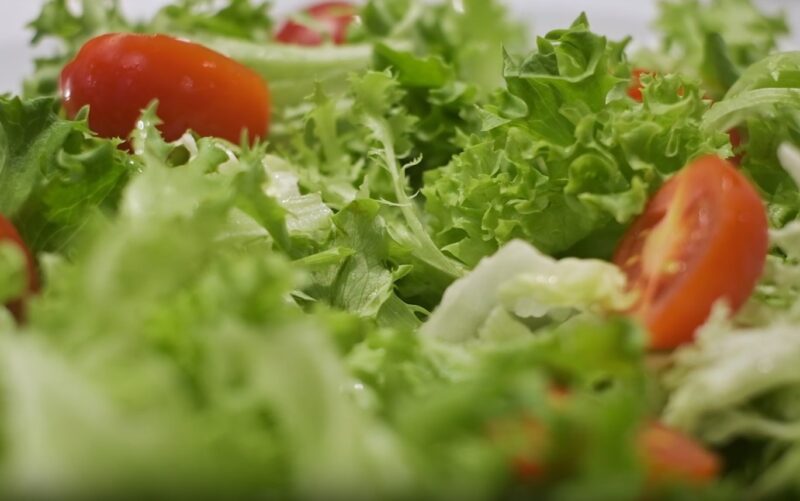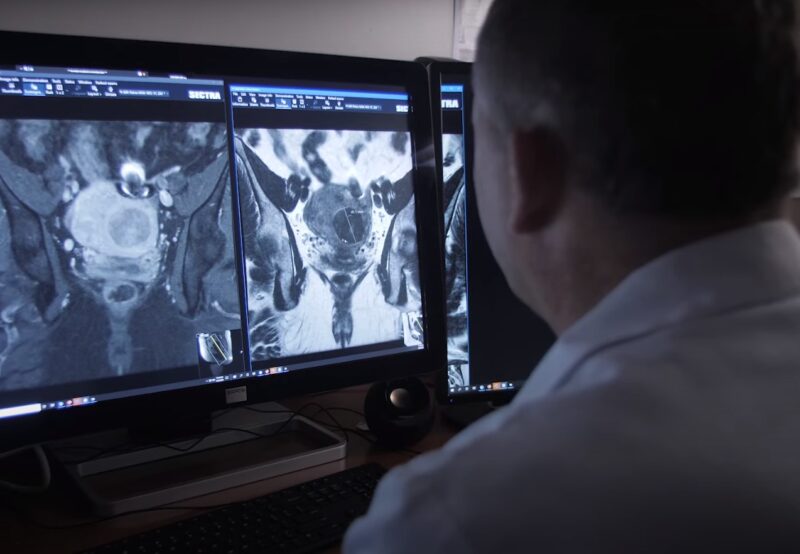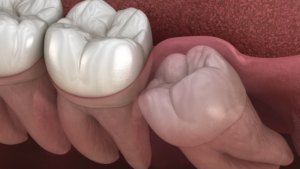Fibroid tumors, non-cancerous growths in the uterus, affect millions of women worldwide. While medical treatments are available, dietary changes can play a crucial role in managing and potentially reducing fibroids.
In this article, we’ll explore effective diets and specific foods that can help combat uterine fibroids, offering practical tips for incorporating these foods into your daily routine.
Key Takeaways
Foods to Include
Recognizing the role of a balanced diet in recovery, similar principles apply whether you’re managing fibroid symptoms or recuperating from procedures like appendix removal, emphasizing the universal importance of gentle, nourishing foods for healing:
1. Green Leafy Vegetables

Benefits: Rich in antioxidants and anti-inflammatory properties, green leafy vegetables like spinach, kale, and broccoli help neutralize free radicals in the body, reducing oxidative stress and inflammation, which are linked to fibroid growth.
Adding these vegetables to salads, smoothies, or stir-fries not only enhances the nutritional profile of your meals but also provides the body with essential minerals and vitamins that support overall health. You can also try kale chips or spinach in omelets to diversify your intake.
Dark, leafy greens are very important in estrogen metabolism as their liver-supportive nutrients aid in detoxifying excess hormones from the body.
2. Whole Grains
Benefits: Whole grains, such as quinoa, brown rice, and oats, are high in fiber, which supports digestive health and helps reduce estrogen levels by binding to the hormone in the digestive tract and facilitating its excretion.
Opting for whole grains over processed grains can stabilize blood sugar levels, reduce insulin spikes, and provide a sustained energy source. Incorporate these grains into your breakfast cereals, use them as sides for meals, or explore recipes like quinoa salads.
High-fiber diets are linked to a lower risk of developing fibroids, pointing out the role of fiber in hormonal balance and weight management.
3. Legumes

Benefits: Beans, lentils, and chickpeas contain phytoestrogens that can mimic the body’s estrogen but with a weaker effect, helping to balance hormone levels. They’re also rich in fiber and protein, supporting overall health.
Adding legumes to salads, soups, and stews not only enhances the dish’s texture and flavor but also provides a hearty, nutritious alternative to meat, which is beneficial for those looking to reduce fibroid risk.
Nutritionists often recommend incorporating a variety of legumes into the diet as a strategy for managing estrogen levels, particularly for women with fibroids.
4. Fatty Fish
Benefits: Salmon, mackerel, and sardines are excellent sources of omega-3 fatty acids, which have potent anti-inflammatory properties. These fats can help reduce the inflammation associated with fibroids and promote overall hormonal balance.
Including fatty fish in your meals twice a week can significantly contribute to your omega-3 intake, supporting cardiovascular health and reducing inflammation. Try grilled salmon or sardines on toast as nutritious meal options.
Dietitians point out that omega-3s are crucial for reducing the production of prostaglandins, compounds that can worsen fibroid symptoms.
5. Berries

Benefits: Berries are packed with antioxidants, which protect the body from oxidative stress and help reduce inflammation, potentially slowing the growth of fibroids.
Snacking on blueberries, strawberries, and raspberries or adding them to yogurt not only satisfies sweet cravings healthily but also boosts your intake of vitamins and antioxidants. Berry smoothies are another delicious way to incorporate these fruits into your diet.
The high antioxidant content in berries can support immune function and discourage the growth of fibroids by protecting cells from oxidative damage.
6. Nuts and Seeds
Benefits: Flaxseeds, chia seeds, and walnuts are high in omega-3 fatty acids and fiber, contributing to hormonal balance and reduced inflammation, which is essential for managing fibroids.
Sprinkling these nuts and seeds on your breakfast cereal, or salads, or incorporating them into baked goods can significantly increase your nutrient intake.
Homemade granola bars with seeds and nuts are a great snack option. Nutritionists highlight that the lignans in flaxseeds can block estrogen receptors on cells, potentially reducing estrogen-related growths like fibroids.
Which Foods to Avoid?
The foods you eat can significantly impact the growth and symptoms of fibroids. Certain foods may exacerbate the condition by promoting inflammation, hormonal imbalances, or weight gain. Here’s a closer look at what to avoid and why:
1. Red Meat and Processed Meats

Consuming high amounts of red meat and processed meats like sausages, bacon, and deli meats can contribute to an increase in body inflammation. These foods are rich in arachidonic acid, a type of omega-6 fatty acid that can promote inflammatory pathways associated with fibroid growth and symptoms.
- Impact: Studies have shown a correlation between high consumption of red and processed meats and an increased risk of developing uterine fibroids. The saturated fats found in these meats can also contribute to estrogen dominance, a condition thought to encourage the development and growth of fibroids.
- Tips: Transition to a diet emphasizing plant-based proteins such as lentils, quinoa, and tofu, which offer anti-inflammatory benefits. If you consume animal protein, choose lean options like chicken or turkey breast and limit your intake to a few times a week.
2. High-Fat Dairy Products
Dairy products, especially those high in fat, may contribute to increased estrogen levels in the body. Estrogen is a hormone that, when produced in excess, can fuel the growth of fibroids.
- Impact: The consumption of high-fat dairy products has been linked to an imbalance in hormone levels, potentially worsening fibroid conditions. These products can also be rich in chemicals and hormones used in dairy farming, which may mimic estrogen in the body.
- Tips: Opt for low-fat or fat-free dairy options if you choose to consume dairy. Better yet, explore plant-based alternatives like almond milk, soy milk, or cashew cheese, which are not only lower in fat but also free of dairy-related hormones and chemicals.
3. Refined Sugar and Carbohydrates

Foods high in refined sugars and simple carbohydrates can lead to spikes in insulin and blood sugar levels, contributing to inflammation and weight gain—two factors that can worsen fibroid symptoms.
- Impact: Insulin resistance, stimulated by high consumption of refined carbs and sugar, can lead to increased estrogen levels, further exacerbating fibroid growth. Additionally, these foods can contribute to obesity, a known risk factor for fibroids.
- Tips: Focus on complex carbohydrates found in whole grains, vegetables, and fruits, which are digested more slowly and help maintain stable blood sugar levels. Avoid sugary snacks and drinks, and instead satisfy sweet cravings with natural sugars found in fruits or small amounts of honey or maple syrup.
4. Alcohol and Caffeine
Both alcohol and caffeine can have a diuretic effect, leading to dehydration and a potential increase in fibroid symptoms. Alcohol consumption can also affect liver function, hindering the body’s ability to regulate estrogen.
- Impact: Regular consumption of alcohol and caffeine can lead to hormonal imbalances, particularly in estrogen and progesterone levels, potentially encouraging fibroid growth and exacerbating symptoms like heavy bleeding and pain.
- Tips: Limit or eliminate alcohol and reduce caffeine intake by switching to herbal teas or decaffeinated coffee. Staying hydrated with water or herbal teas can help reduce bloating and discomfort associated with fibroids.
How to Make These Dietary Changes Work for You?
Incorporating these dietary adjustments into your lifestyle requires a thoughtful and gradual approach. Here are some strategies to make the transition smoother:
Start Small!

Instead of a drastic overhaul, begin with manageable changes. If you’re used to having a steak for dinner, try replacing it with a plant-based alternative once a week and gradually increase from there.
Do Meal Planning
Spend time each week planning your meals to ensure they include fibroid-friendly foods. This can help prevent last-minute decisions that might lead to less healthy choices.
Preparation Is Key

Preparing meals in advance can save time and reduce the temptation to eat convenience foods that might not align with your dietary goals. Batch cooking on weekends can be a great strategy.
Educate Yourself
Learn to read labels to avoid hidden sugars, fats, and chemicals in processed foods. Being informed can help you make healthier choices.
Don’t be Afraid to Seek Support!
Making dietary changes can be challenging, so consider seeking support from a nutritionist, joining a health-focused group, or finding a friend or family member who can embark on this journey with you. Having someone to share the experience with can make it more enjoyable and sustainable, don’t hesitate!
FAQs
Can diet alone cure uterine fibroids?
Diet cannot cure uterine fibroids but can play a significant role in managing symptoms and potentially slowing their growth.
How quickly can dietary changes impact fibroid symptoms?
The impact of dietary changes on fibroid symptoms can vary; some may notice improvements in a few weeks, while for others, it might take several months.
Are there any supplements recommended for managing fibroids?
While specific supplements like Vitamin D or Omega-3 fatty acids may support overall health, it’s essential to consult with a healthcare provider before starting any new supplement, especially for managing fibroids.
Can exercise complement dietary changes in managing fibroids?
Yes, regular exercise, alongside dietary changes, can help manage fibroid symptoms by reducing stress, improving circulation, and helping with weight management.
Is soy beneficial or harmful for women with fibroids?
Soy contains phytoestrogens, which can have both estrogenic and anti-estrogenic effects. Moderation is key, and it may be beneficial for some women but not all. Consultation with a healthcare provider is recommended.
Can losing weight help reduce fibroid growth?
Yes, weight loss can help reduce the volume of fibroids by decreasing the amount of estrogen produced by fat tissue, potentially alleviating symptoms.
Summary
While there’s no one-size-fits-all cure for fibroid tumors, adopting a diet rich in whole foods, fiber, and omega-3 fatty acids, while avoiding certain inflammatory foods, can significantly impact your health and well-being.
Empower yourself with the knowledge and tools to make dietary choices that support your body’s natural healing processes. It’s always advisable to consult with a healthcare provider before making significant changes to your diet, especially when managing health conditions like fibroids.















